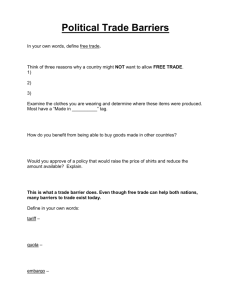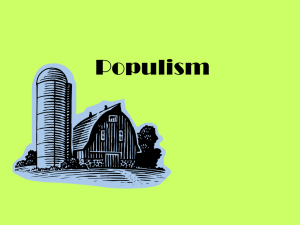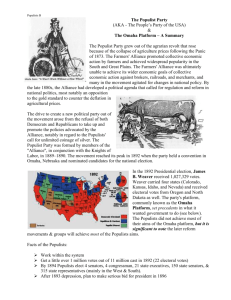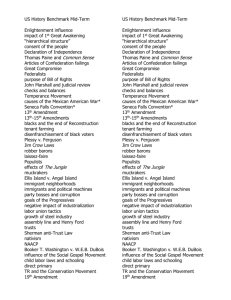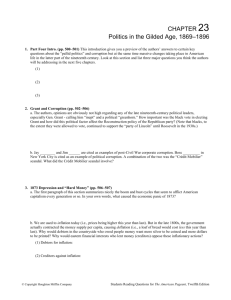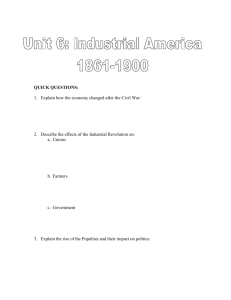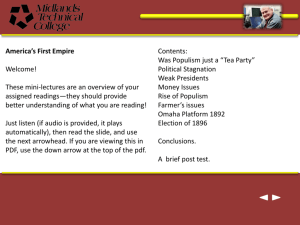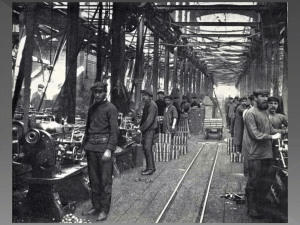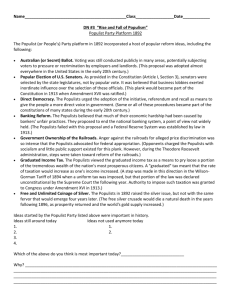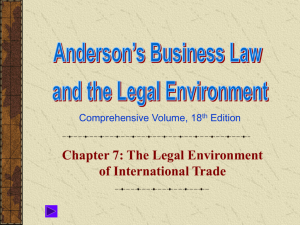IB HOTA
advertisement
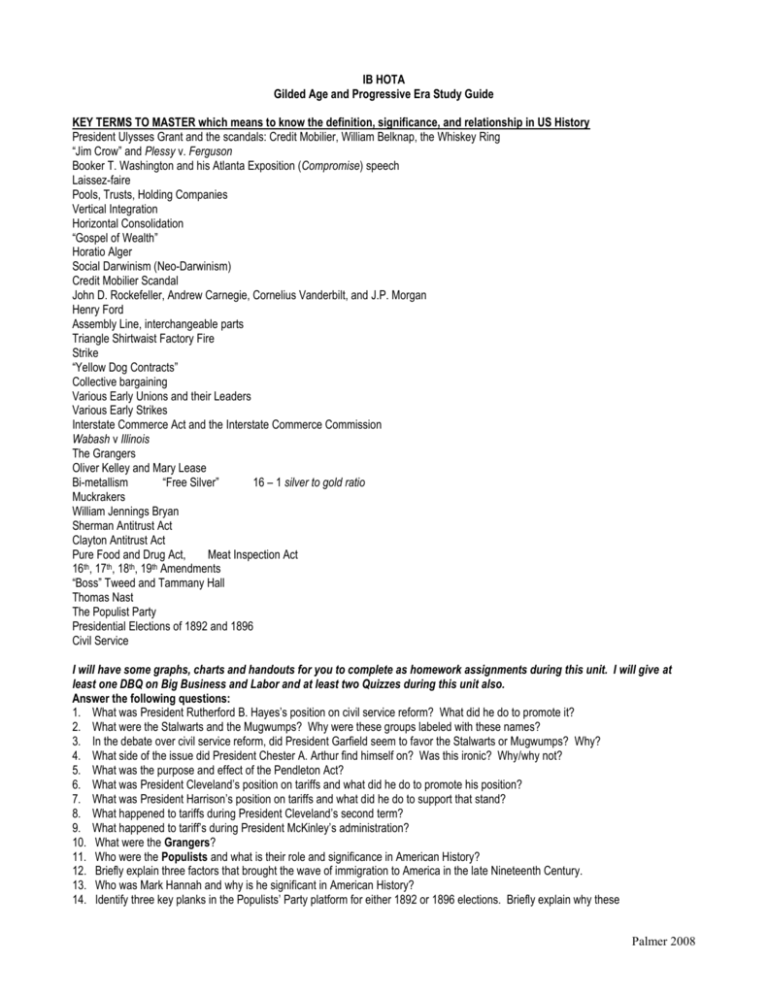
IB HOTA Gilded Age and Progressive Era Study Guide KEY TERMS TO MASTER which means to know the definition, significance, and relationship in US History President Ulysses Grant and the scandals: Credit Mobilier, William Belknap, the Whiskey Ring “Jim Crow” and Plessy v. Ferguson Booker T. Washington and his Atlanta Exposition (Compromise) speech Laissez-faire Pools, Trusts, Holding Companies Vertical Integration Horizontal Consolidation “Gospel of Wealth” Horatio Alger Social Darwinism (Neo-Darwinism) Credit Mobilier Scandal John D. Rockefeller, Andrew Carnegie, Cornelius Vanderbilt, and J.P. Morgan Henry Ford Assembly Line, interchangeable parts Triangle Shirtwaist Factory Fire Strike “Yellow Dog Contracts” Collective bargaining Various Early Unions and their Leaders Various Early Strikes Interstate Commerce Act and the Interstate Commerce Commission Wabash v Illinois The Grangers Oliver Kelley and Mary Lease Bi-metallism “Free Silver” 16 – 1 silver to gold ratio Muckrakers William Jennings Bryan Sherman Antitrust Act Clayton Antitrust Act Pure Food and Drug Act, Meat Inspection Act 16th, 17th, 18th, 19th Amendments “Boss” Tweed and Tammany Hall Thomas Nast The Populist Party Presidential Elections of 1892 and 1896 Civil Service I will have some graphs, charts and handouts for you to complete as homework assignments during this unit. I will give at least one DBQ on Big Business and Labor and at least two Quizzes during this unit also. Answer the following questions: 1. What was President Rutherford B. Hayes’s position on civil service reform? What did he do to promote it? 2. What were the Stalwarts and the Mugwumps? Why were these groups labeled with these names? 3. In the debate over civil service reform, did President Garfield seem to favor the Stalwarts or Mugwumps? Why? 4. What side of the issue did President Chester A. Arthur find himself on? Was this ironic? Why/why not? 5. What was the purpose and effect of the Pendleton Act? 6. What was President Cleveland’s position on tariffs and what did he do to promote his position? 7. What was President Harrison’s position on tariffs and what did he do to support that stand? 8. What happened to tariffs during President Cleveland’s second term? 9. What happened to tariff’s during President McKinley’s administration? 10. What were the Grangers? 11. Who were the Populists and what is their role and significance in American History? 12. Briefly explain three factors that brought the wave of immigration to America in the late Nineteenth Century. 13. Who was Mark Hannah and why is he significant in American History? 14. Identify three key planks in the Populists’ Party platform for either 1892 or 1896 elections. Briefly explain why these Palmer 2008 were important to the Populists. 15. Who were the muckrakers and why are they remembered in the history texts? Provide a contemporary example of a muckraker. 16. Explain the terms “silverites” and “goldbugs”. 17. Explain what the famous “Cross of Gold” speech was and who gave it. Palmer 2008
